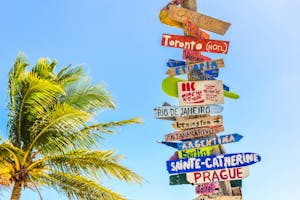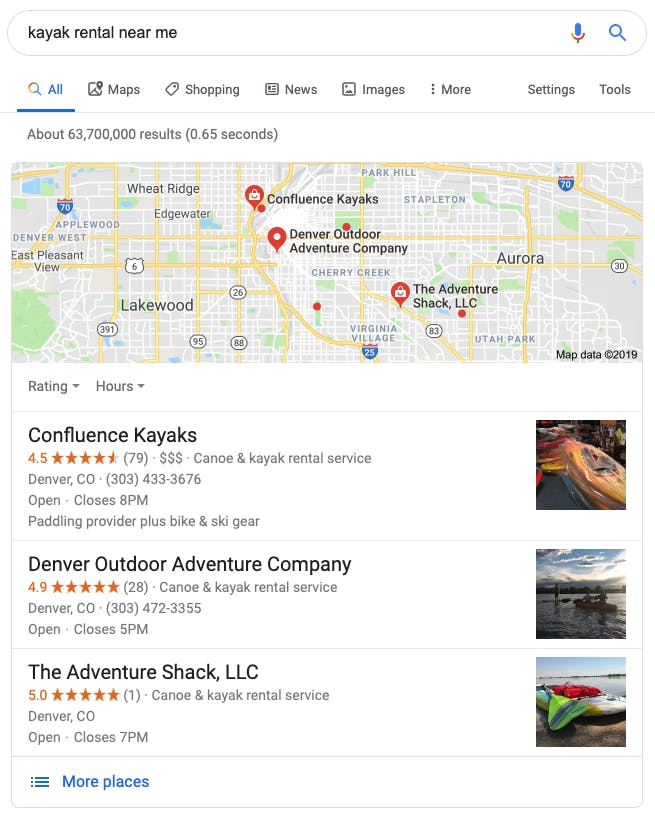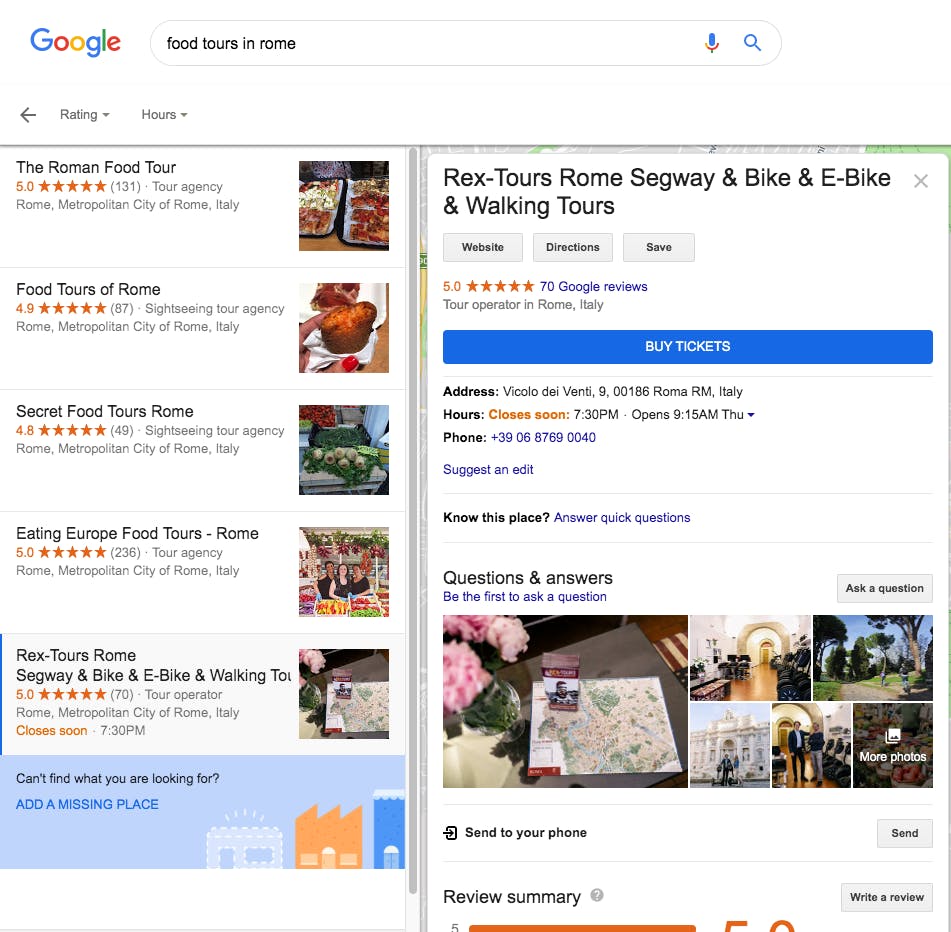- 9 minute read
- Digital Marketing
- Local Strategies
Beginner,
Intermediate
Get a behind-the-scenes-look into FareHarbor's 2024 season

If you’ve read our guide to local SEO, you know it’s important to have local citations on business directories to help your rankings on local searches. A local citation is a mention of the name, address, and phone number of your business on websites and apps like Yelp, Yellow Pages, and Tripadvisor, local business directories, and social media platforms. These directories are vital for your SEO strategy, giving searchers plenty of places to find you on the web and affecting your local rankings.
This guide will cover the different types of local citations, some of the most important components of a citation, and a list of the major directories where you should list your business.
 Local citations can influence how both search engines and users perceive your business. As search engines amass data about your business, you want them to find accurate information that tells them that yours is an established, trustworthy business. This helps your chances of ranking well in local searches. If, on the other hand, they find inconsistent data that makes it harder to determine what is accurate, they will not see your business as trustworthy, which could, in turn, hurt rankings. Citations also generate links to your site, adding more credibility.
Local citations can influence how both search engines and users perceive your business. As search engines amass data about your business, you want them to find accurate information that tells them that yours is an established, trustworthy business. This helps your chances of ranking well in local searches. If, on the other hand, they find inconsistent data that makes it harder to determine what is accurate, they will not see your business as trustworthy, which could, in turn, hurt rankings. Citations also generate links to your site, adding more credibility.
One of the most important factors of local citations is ensuring that your NAPW data (name, address, phone number, website URL) is consistent throughout all citations to ensure that customers can find the same information for your business across the board. Consistent, accurate directory listings generate trust in users. According to BrightLocal, 80% of consumers lose trust in a business if they see inconsistent or incorrect business information online.
You certainly don’t want to lose customers who go to an incorrect address or call an old phone number for your business. Keeping your citations consistent and up-to-date is easy, can be done quickly, and has a significant impact on rankings and conversions. In a nutshell, the easier it is for users to find you and get in touch with you, the more likely they are to book with you.
Major Local Business Data Platforms: The best place to start is with the most important business data platforms, which were specifically created to aggregate local business data. Some of these major platforms include Google My Business, Acxiom, Localeze/Neustar, and Infogroup. Review sites such as Yelp and social media platforms like Facebook are also important, as a majority of your customers are likely familiar with them and trust the reviews they find on these platforms.
Geo/Industry-Specific Platforms: Once you’ve covered your bases with the major platforms, it’s important to also list your business on industry-specific platforms — such as Tripadvisor and Expedia — as well as listings specific to your location, like your local chamber of commerce. To get some ideas of where you should list your business, you can search the Moz citations lists by category and by city.
The Wider Web: In addition to business directories, you can build up citations from local publications, like a well-known travel blog in your city, local news sites, government databases in your city, and a variety of other websites. Find local publications and websites that could be aligned with your business, and get creative about finding ways to work with them and link to your business from their websites.
We’ve already covered the most important components of a local citation, which is your NAPW (name, address, phone number, website URL) data. It’s crucial that this information is accurate and consistent across all citations and matches what you have listed on your own website. If you change your address or phone number, make sure you update this information across all the directories where your business is listed.
 Pro-tip: Pay attention to the details. If your address is formatted as 123 Main St. Suite 45 on your website, then make sure it’s consistent on your citations, and don’t use variations like 123 Main St. STE 45.
Pro-tip: Pay attention to the details. If your address is formatted as 123 Main St. Suite 45 on your website, then make sure it’s consistent on your citations, and don’t use variations like 123 Main St. STE 45.
In addition to this information, and depending on what options are available in each directory, here are some other components you might include in your citation:
First of all, make sure your contact information is accurate and consistent across your business website. For example, if you change your phone number, you should go through every single page where your contact information might appear and update it. Don’t let any of them slip through the cracks!
 The most important online listing for your business is Google My Business. GMB’s importance for local businesses is much greater than a common citation. Because of this, GMB is the first and most important business listing you should set up and make sure to keep up to date. For more on how to make the most of GMB, check out our guide to setup and optimization and work your way through our GMB checklist.
The most important online listing for your business is Google My Business. GMB’s importance for local businesses is much greater than a common citation. Because of this, GMB is the first and most important business listing you should set up and make sure to keep up to date. For more on how to make the most of GMB, check out our guide to setup and optimization and work your way through our GMB checklist.
Once you have GMB up and running, it’s time to move on to the major citation sites, including but not limited to:
When you have all your basics covered, the next directories you want to focus on are those specific to the travel, tourism, and activities industry, such as:
While many local citations are free, there are some that require a fee, especially those that are highly localized to your area or hyper-specific to your industry. If you’re trying to decide whether you want to pay for a listing, think about the audience for that particular directory and whether it will send enough traffic to your business to justify the expense.
Business listings might seem like a small detail, but they are an important factor in your local SEO strategy. The best part is that they are easy to create and maintain! If you’re just getting started, start with your GMB profile and the major business directories, and you’ll see how quick and easy it is. For more tips on improving organic traffic, check out our SEO guides.